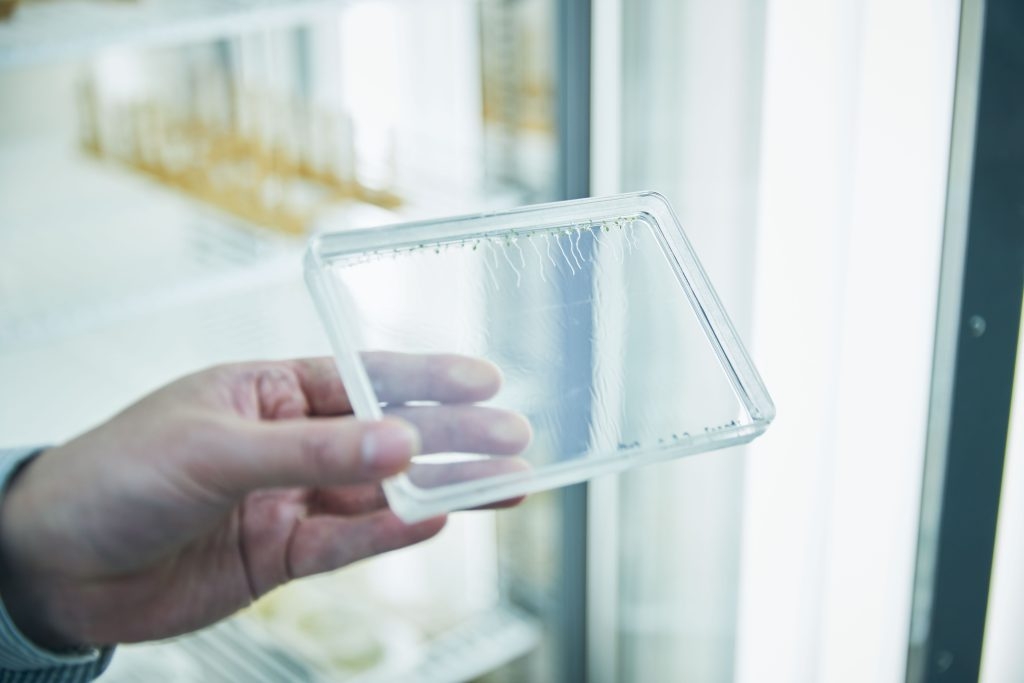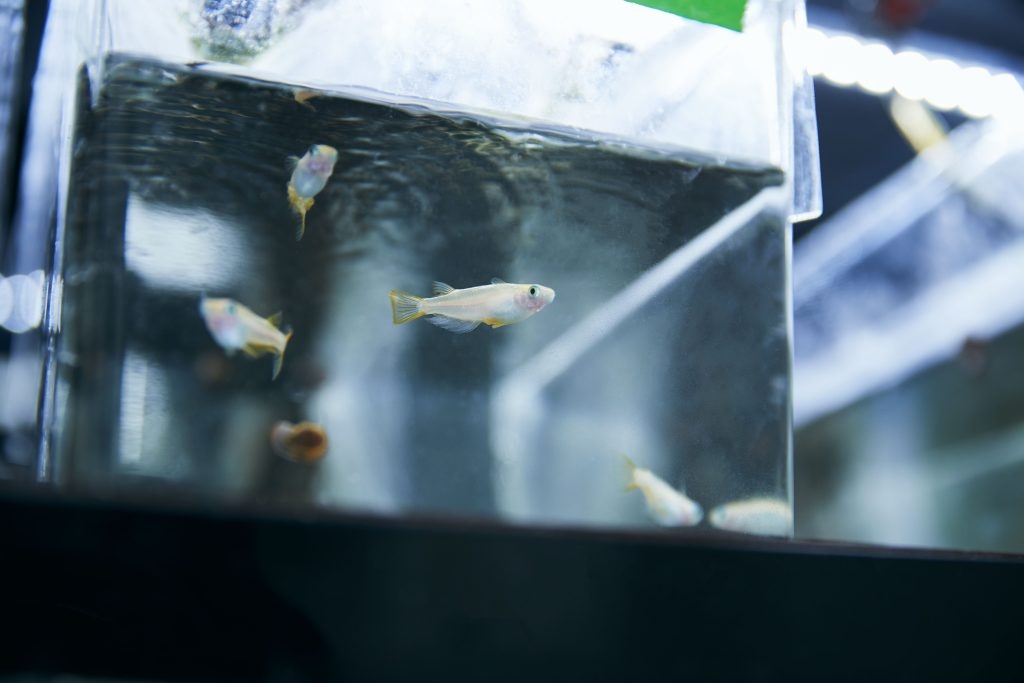It goes without saying that there’s a lot of research going on simultaneously with education at the Tokyo University of Science. The university makes a conscious effort to promote cross-disciplinary research. This is done with the purpose of finding unprecedented research results by bringing together researchers with disparate backgrounds and specialties. The Research Institute for Science and Technology, for its part, aims to break down barriers between the university and outside research institutions and between domestic and international research. The Institute’s goals are to further interdisciplinary research, to improve the mobility and flexibility of researchers, and to strengthen ties with society. The Division of Biological Environment Innovation, where Associate Professor Miyagawa and Junior Associate Professor Sakamoto work, is one such research organization. The Division’s mission is to develop useful technologies for food and health and for protecting natural environments in which organisms can live, amid rapidly changing habitats.

Associate Professor Miyagawa is trying to clarify how chemical substances released into the environment affect living organisms. “Chemicals originating from ordinary cosmetics, daily goods, and pharmaceuticals could be having negative impacts on living organisms.” Associate Professor Miyagawa says there is no concern that these chemical substances will affect humans right away. But when they do begin to affect us, as was the case with pollution, it will be too late. In fact, an experiment using medaka rice fish indicated that the fish exhibit behavioral changes when certain pharmaceuticals are introduced into their habitat. Researchers are looking carefully at what is happening at the genetic level when these behavioral changes are observed. According to Associate Professor Miyagawa, this research will be indispensable in drawing up regulatory standards on chemical substances. Junior Associate Professor Sakamoto, on the other hand, is attempting to unravel the mechanisms that determine environmental responses and adaptation in plants. “Boron is an essential nutrient that plants need to live,” Junior Associate Professor Sakamoto explains. “But when soil contains excess levels of boron, boron can actually harm plant growth.” His research has revealed that excess boron causes DNA damage. He has also discovered that chromatin, a compound of DNA and protein in cells, prevents DNA damage caused by excess boron through a mechanism that maintains the stability of the DNA structure.

The key to research process in a major field like the environment is to bring together the skills and talents of many people. Associate Professor Miyagawa’s research on the effects of chemical substances on living organisms is part of a bigger joint project with other universities. “One university is studying the levels of pharmaceutical chemicals flowing into our rivers. The Tokyo University of Science is responsible for determining how chemical substances act on living organisms, and another university is investigating what the effects are at the larger individual and group levels.” In Junior Associate Professor Sakamoto’s case, he participates in another group at the Institute, making use of the technology he developed in his research to analyze chromatin. “The advantage of joint research is that you can collaborate on research in fields you would have never considered on your own.” When researchers with different areas of expertise work together organically, research that was previously impossible becomes possible, and new academic fields are born. You can witness the seeds of many such developments at the Tokyo University of Science.
*The information and affiliations mentioned in this article are reflective of the time at which the interview was conducted.
■ Main research themes
■ Main research themes